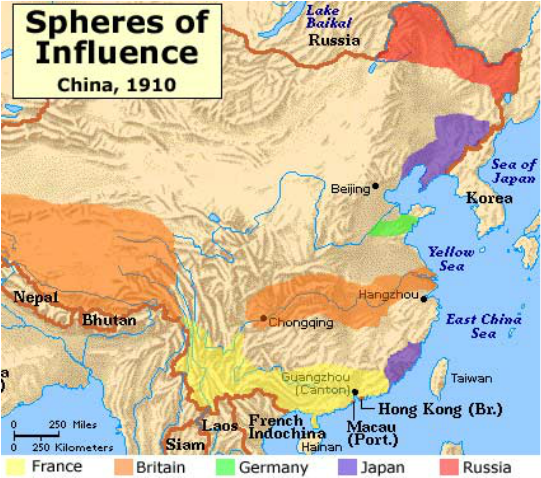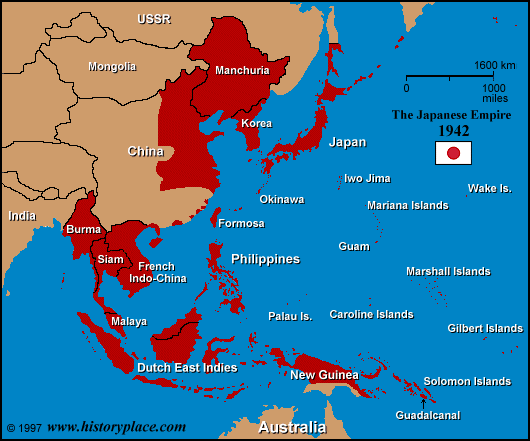Is this a supporting or compelling question?
Was the Age of Imperialism beneficial or harmful to regions under Western control?
Compelling Question: It starts an argument
This map shows the aftermath of which European Conference?
Berlin Conference
Claim: The Berlin Conference (1884–1885) contributed to the European domination of Africa.
Which piece of evidence BEST supports this historical claim?
A) The conference was organized by African leaders to negotiate fair trade agreements with Europeans.
B) The British and French were the only two European nations involved in the division of Africa.
C) The conference divided Africa among European powers without considering African cultures or borders.
D) European nations agreed to respect African sovereignty and independence.
C) The conference divided Africa among European powers without considering African cultures or borders.
What is the term that matches this definition...
the conquering of foreign territories by powerful countries for natural resources & markets
Imperialism
The Opium War was significant for Britain because it led to
A. a continued flow of opium for its people.
B. increased power and trading rights in China.
C. a decreased British influence in China.
D the collapse of the Qing dynasty.
B. increased power and trading rights in China.
Is this a supporting or compelling question?
What events led to the Boxer Rebellion?
Supporting: it has a specific answer to look up.
What nation had the largest Sphere of Influence in China in 1910?

Britain
Claim: The British East India Company played a crucial role in controlling India before direct British rule.
Which piece of evidence BEST supports this historical claim?
A) The British East India Company controlled trade and had its own private army.
B) The British government officially took control of India in 1858 after the Sepoy Rebellion.
C) Indian nationalists formed the Indian National Congress in 1885 to push for self-rule.
D) The Mughal Empire maintained power in India until the early 19th century.
A) The British East India Company controlled trade and had its own private army.
What is the term to this definition:
in Japan, the reign of emperor Meiji from 1868 to 1912 that was marked by rapid industrialization.
Meiji Restoration
A main economic cause of the new imperialism of the 19th century was
A. an increased demand for European manufactured goods.
B. the need for raw materials for industrial production.
C. a move from capitalism to communism by many European governments.
D. an increased demand for goods manufactured in Asia.
B. the need for raw materials for industrial production.
Is this a supporting or compelling question?
Did the benefits of Imperialism outweigh the costs?
Compelling: it starts an argument.
Using this map, what conclusion can we draw about Japan and imperialism?

They established themselves as an Imperialist power. If you can't beat em', join em' type of vibes.
Claim: The Meiji Restoration (1868) helped Japan become a modern world power.
Which piece of evidence BEST supports this historical claim?
A) Japan adopted Western-style industry, military tactics, and government reforms.
B) Japan continued its policy of isolationism and resisted Western influences.
C) Japan relied on China for technological advancements and economic policies.
D) Japan remained a feudal society under the leadership of the Tokugawa Shogunate.
A) Japan adopted Western-style industry, military tactics, and government reforms.
What is the term that matches this definition:
the right of foreigners to be protected by their own nation's laws.
extraterritoriality
Which statement best describes King Leopold's rule in the Congo?
A. He subjected Africans to brutal treatment in pursuit of wealth.
B. He exploited the colony economically but tried to rule fairly.
C. His chief goal was to spread Christianity.
D. His chief goal was to gain a share in the slave trade.
A. He subjected Africans to brutal treatment in pursuit of wealth.
Categorize the following questions into supporting and compelling questions.
1) Did opening markets justify the Opium Wars?
2) How did Imperialism impact India's textile industry?
1) Compelling- it is debatable.
2) Supporting- it has a specific answer
What does this political cartoon tell us about which countries wanted China and China's reaction to Imperialism?
1) Britain, Germany, Russia, France, and Japan.
2) Angry and tried to fight against it
Claim: European imperial powers justified their colonization of Africa by arguing they were bringing civilization to the continent.
Which piece of evidence BEST supports this historical claim?
A) European powers established schools, railroads, and medical facilities, often forcing European culture on native populations.
A) African leaders willingly invited European nations to take control of their lands to improve governance.
B) European nations ensured that African societies retained complete political and economic independence.
C) The Scramble for Africa was driven solely by African countries seeking foreign assistance.
D) European powers established schools, railroads, and medical facilities, often forcing European culture on native populations.
D) European powers established schools, railroads, and medical facilities, often forcing European culture on native populations.
What is the term that matches this definition:
a strong and radical love of one's country
Nationalism
How was the Taiping Rebellion different from the Boxer Uprising?
A. The Taiping Rebellion targeted the Qing dynasty while the Boxer Uprising targeted foreigners.
B. The Taiping Rebellion targeted the Japanese while the Boxer Uprising targeted the Qing dynasty.
C. The Taiping Rebellion targeted peasants while the Boxer Uprising targeted the allies of the empress.
D. The Taiping Rebellion targeted Britain while the Boxer Uprising targeted reformers.
A. The Taiping Rebellion targeted the Qing dynasty while the Boxer Uprising targeted foreigners.
Categorize the following questions into supporting and compelling questions.
1) Did colonization advance or hold back African industrialization?
2) What was the Meiji Restoration?
3) Was Imperialism caused more by economic greed or a genuine belief in spreading civilization?
4) How did the Opium Wars impact China?
1) Compelling-It starts an argument.
2) Supporting- has a specific answer
3) Compelling-it starts an argument
4) Supporting- has a specific answer
How does this map show us one similarity between the Age of Imperialism and the colonies during the Age of Exploration?

The "Mother Country" looks to colonies and conquered land for Raw Materials.
Claim: The Opium Wars demonstrated how economic interests can lead to military conflict.
Which piece of evidence BEST supports this historical claim?
A) Britain used military force to continue selling opium in China after Chinese officials attempted to stop the trade.
B) The Qing Dynasty declared war on Britain to expand its own opium trade to Europe.
C) China initiated the wars to force Britain to buy opium from Chinese merchants.
D) The wars were fought between European powers competing to control China’s silk industry.
A) Britain used military force to continue selling opium in China after Chinese officials attempted to stop the trade.
List ALL types of Imperialism and give their definitions.
Hint: There are Four
Direct Rule: country rules over another country through enforcement of their own laws, basically takes over their entire government and culture
Indirect Rule: Keeps loyal government officials in office, encourage mother countries culture, but is essentially doing the same thing
Protectorate: local rulers were left in place but were expected to follow the advice of european advisers in trade or missionary activity.
Sphere of influence: area in which an outside power claimed exclusive investments and trading privileged.
Why did European Nations hold the Berlin conference?
To prevent European nations from going to war over Africa.